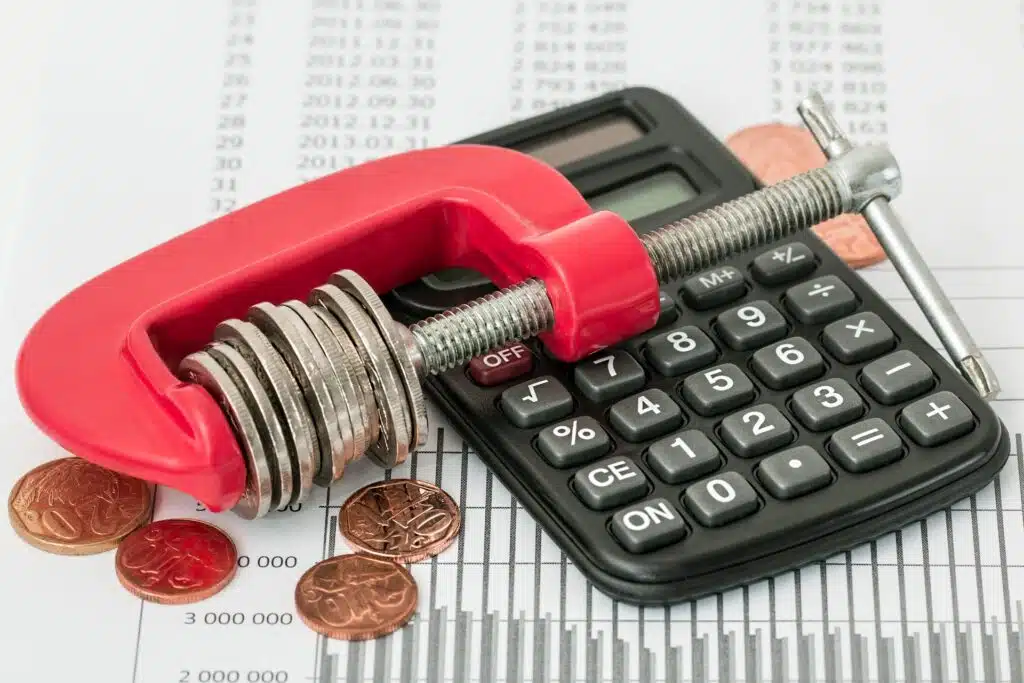
When considering how much debt do you have to have to file bankruptcy, the bankruptcy code does not impose a minimum amount of debt to file bankruptcy. So, to answer how much in debt to file bankruptcy? We have found that most clients have at least $10,000 in debts when filing bankruptcy.
As noted earlier, Chapter 7 bankruptcy does not require a minimum amount of debt to file. To be eligible for Chapter 7 bankruptcy you must pass a means test to determine if you have disposable income to repay your debts. Chapter 7 does not impose a minimum or maximum debt amount to file for bankruptcy.
You are required to compare your income to the average income of a household of your size in the state where you live. If your average income is below that amount, you passed the means test. If it is over the average amount, you may still be able to apply some expenses to see if you pass the second part of test.
In addition to passing the means test, you must also complete a credit counseling course from and approved credit counseling agency within the 180 period prior to filing for bankruptcy.
A bankruptcy attorney will advise if you are eligible to file, what is needed to file, which type of bankruptcy, and how it will affect your credit.
Although chapter 13 does not require a minimum debt amount it does have a $2,750,000 limit on the total amount of debt an individual can have as of the date of filing. See 11 U.S.C. sec 109(e). Only individuals can file chapter 13, and not businesses. Chapter 11 bankruptcy may be an option if you exceed the Chapter 13 debt limit.
The other requirement for chapter 13 is that the Debtor, or individual filing, have regular income.
In Bankruptcy you can discharge most unsecured debts such as credit card debt, medical bills, and personal loans.
Student loans, alimony and child support, and most IRS debt is not discharged in bankruptcy.
Secured debts such as mortgages and car loans must be given special attention since if you list those debts in your bankruptcy and do not pay them in a timely manner, although you may remove your personal liability, the creditor will be still be able to take action to repossess the property or collateral securing the loans.
It is important to obtain a credit report where you will see your credit cards and secured debt.
Now that we’ve established that there’s no minimum debt to file bankruptcy, the following factors will help you determine if you should file:
The above factors are non-exclusive and each situation is different.
If you cannot discharge the majority of your debts in bankruptcy, you should not consider bankruptcy unless there is some specific benefit that does not involve obtaining a discharge such as saving a home from foreclosure or getting current on secured debt.
You should always consult with a bankruptcy attorney to explore the pros and cons of filing for bankruptcy.
Bankruptcy is a complex process, and it’s important to understand how much debt you have to have to file and what are the eligibility requirements. If you are considering filing for bankruptcy, it’s important to speak with an experienced bankruptcy lawyer who can help you navigate the process and protect your rights.
The Stiberman Law Firm offers free consultations so that you can get all of your questions answered before making any decisions. Contact us today to get started on your path to financial freedom.
Speaking to our law firm is always 100% confidential. We do our best to respond to inquiries in under 24 hours.

We’ll get in touch as soon as possible.